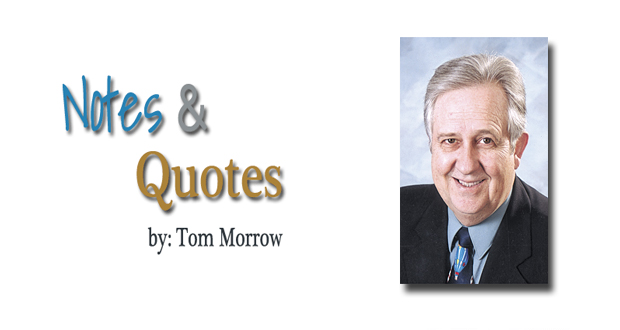Harding: One of America’s Worst Presidents
By Tom Morrow
Warren Gamaliel Harding was the 29th President of the United States, serving from March 4, 1921 until his death on Aug. 2, 1923. History and the nation never realized just how bad he was until after his death.

Harding died as one of the most popular presidents, but later after the exposure of scandals that took place during his tenure — such as the infamous Teapot Dome oil scandal – his popularity eroded dramatically. In historical rankings of the U.S. presidents, a number of historians rate Harding among the worst of chief executives.
Historians generally agree that if Harding was guilty of anything it was poor judgment of character and choice of appointments. He famously took care of his friends, but many of them were either unqualified for their positions or took illegal advantage of their office.
Harding was born in Blooming Grove, Ohio, Nov. 2, 1865. Except when political service took him elsewhere, he lived in rural Ohio all of his life. When not yet 20 years of age, he settled in Marion and bought the failing The Marion Star newspaper, building it into a successful publication. In 1899, he was elected to the Ohio State Senate, and after four years in office successfully ran for lieutenant governor. He was defeated for governor in 1910, but four years later Harding was elected to the U.S. Senate.
In 1920, when Harding ran for the Republican nomination for president, he was considered an “also-ran” with little chance of success. The leading candidates could not gain a majority in order to secure the GOP nomination, leaving the convention deadlocked. Harding’s support gradually grew until he was nominated on the 10th ballot.
Harding the campaigner
Harding conducted a “front porch campaign” from his home in Marion allowing supporters to come to him. Running on a theme of “return to normalcy,” Harding was victorious over Democrat James M. Cox and Socialist Party candidate Eugene Debs. Harding became the first sitting U.S. senator to be elected president.
Harding preferred a low-key inauguration without the customary parade celebration. He was sworn in as President on March 4, 1921, in the presence of his wife and father. There was a brief reception at the White House where he gave a short inaugural address.
“Our most dangerous tendency is to expect too much from the government and at the same time do too little for it,” he said. His expectations were delivered on both accounts.
Harding did appoint a number of well-regarded and sucessful figures to his cabinet, including Andrew Mellon as Treasury Secretary; Herbert Hoover as Secretary of Commerce; and Charles Hughes as Secretary of State.
A major foreign policy achievement came with the Washington Naval Conference of 1921–1922, in which the world’s major naval powers agreed on a naval limitations program that lasted for 10 years. But Harding’s success was overshadowed by two of his cabinet members: Interior Secretary Albert Fall and Attorney General Harry Daugherty, both were implicated in corruption.
The but the two Harding cabinet appointees who darkened the reputation of his administration for their involvement in scandal were Harding’s Senate friend Fall of New Mexico and Daugherty. Fall was a Western rancher and former miner, who advocated pro-development. He was opposed by noted conservationists of the day such as Gifford Pinchot, who wrote, “… it would have been possible to pick a worse man for Secretary of the Interior, but not altogether easy.”
Wyoming’s ‘Tea Pot Dome’ outcropping
Harding appointed a number of other friends and acquaintances to federal positions who served competently, while other of Harding’s friends who proved corrupt, were dubbed the “Ohio Gang.”
Most of the scandals maring the reputation of Harding’s administration did not emerge until after his death. The most memorable of those scandals involved the U.S. Naval oil reserves at Tea Pot Dome in Wyoming. Teapot Dome was one of three reserves set aside for use by the Navy in a national emergency. There was a longstanding argument those reserves should be developed. Harding signed an executive order transferring the reserves from the Navy Department to the Department of Interior under Secretary Fall’s control. He was accused of pocketing money from that maneuver.

Secretary Albert Fall
The scandals greatly damaged Harding’s historical reputation. On Aug. 2, 1923, Harding died of heart disease in San Francisco while on a western speaking tour. Among friends he was a noted gambler, heavy drinker and possibly a womanizer.
Harding was succeeded by his vice president, Calvin Coolidge, who is highly regarded in history. He would go on to be elected President in his own right after completing Harding’s term.




